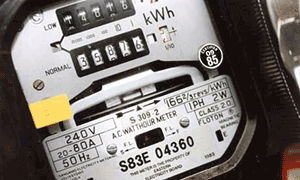Public utilities like electricity are indispensable but not when they puncture a hole in the pocket of consumers, some of whom earn the national minimum wage of N18,000 per month, or less.
A healthy financial habit implies that individuals make a conscious effort to eliminate financial drain. Every hole in the pocket plugged is additional naira saved for investment and wealth creation.
Creation of wealth is one of the major ways an individual can increase his net worth. One may not achieve it except one eliminates unnecessary expenses, save money and invest in income yielding ventures.
This is what electricity consumers, particularly in Lagos, are beginning to realise after electricity distribution companies (DISCOs) slammed fraudulent bills on them.
Cephas Enyiaka runs a provisions store in a kiosk in front of his two bedroom apartment in Ipaye, Iba-Tedo, in Ojo, Lagos. He wrote a petition to the National Electricity Regulatory Commission (NERC), a copy of which he made available to TheNiche. He complained in the letter that his electricity bill overshot his monthly house rent, implying that if he pays house rent and electricity bill, he will be left with nothing to take care of his family.
N70,000 bill within a year
From less than N3,000 monthly bill, he wrote, Eko Electricity Distribution Company (EKEDC) increased his bill over a period of time to about N8,000 by June this year.
Even though the power cable was disconnected, EKEDC continued to send him bills that accumulated to over N70,000 within a year.
Enyiaka admitted he has not sought redress from the customer complaint unit of EKEDC but said he petitioned the NERC after the marketing manager insisted he pays the bill.
Escalation into N80,000
Another electricity consumer wrote a letter of complaint to the Iba Business Unit, yet her bill continued to rise until it accumulated to over N80,000.
The customers, who are on estimated billing because they do not have metres, argued that power supply in their area dropped to almost zero during the period and therefore the bills are not justifiable.
Abayomi Bombata, a retired military officer who lives on Aghaonu Street, Igbo-Elerin, Lagos, is also upset over the billing fraud, and has once called for the withdrawal of the licence of the companies to deter potential exploiters.
Unpaid subsidy
A new tariff regime which Lagos DISCOs capitalised on to slam customers with false bills is a money drainer, and R1, R2 and C1 consumers are paying dearly for it.
According to the NERC, those in the R1, R2 and C1 segments are supposed to enjoy subsidy to reduce their bills in the multi-year tariff order (MYTO). But this is not the case.
Now Enyiaka, Abayomi, and others are making conscious efforts to stop the financial drain.
For Enyiaka, continuous payment means little or no savings for investment in his business. Abayomi’s pension goes into paying electricity bill.













